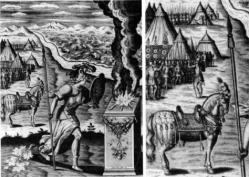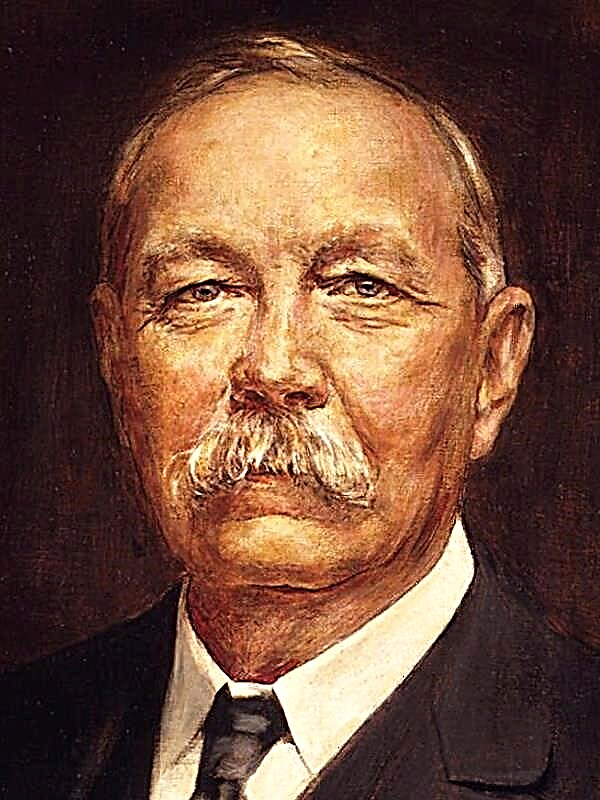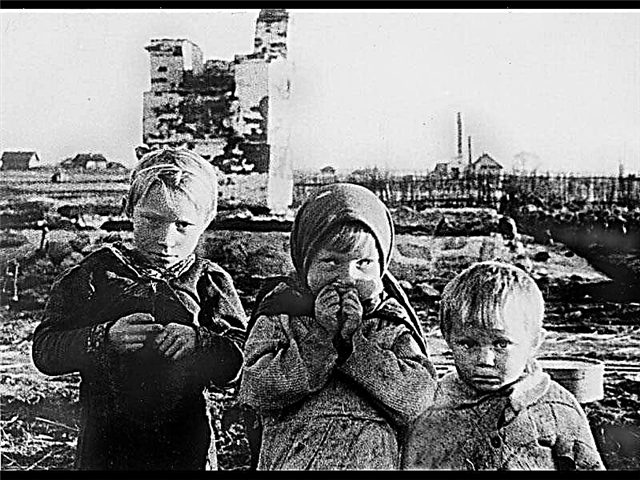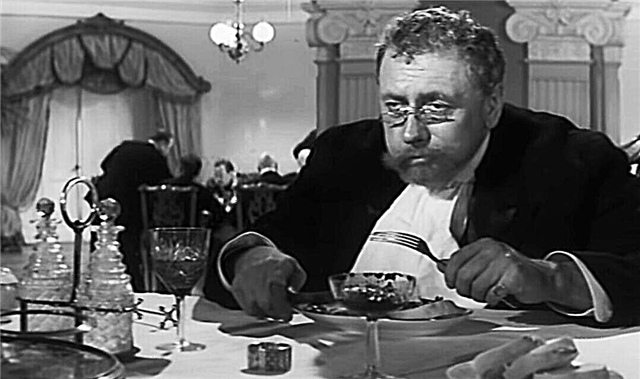“This is an unusual comedy! - warns the actor pronouncing the prologue. “There is no obscenity in her, there is neither a procurator, nor a lascivious woman, nor a boastful warrior, nor foundlings, nor a lover who abducts her beloved, but only a game of fate, the vanity of human intentions and the nobility of perfect valor.”
There were two neighboring regions in Greece, Aetolia and Elis. One old man from Aetolia had two sons, Philopolis and Tindar. The younger, Tyndara, was kidnapped by a cunning slave as a small child and sold to Elis. There, the owner gave the boy as comrades to his own little son, Filocrates; Filokrat and Tyndar grew up as friends. Many years passed, a war broke out between Aetolia and Elis. The eldest son of an Etolian old man, Philopolis, was captured by the Elis, and Filokrat and Tindar were captured by an Etolian prisoner, and just the old father bought them, not knowing that one of the captives was his own son. Truly "the gods play with people like a ball!"
The action is played out in Aetolia. The play begins with a hangman’s monologue - even such an unusual comedy could not do without this character. This is the hangover of Philopolim, who was recently captured; sorry for him, well done was a guy, no one left him hungry! And now you have to lose weight and grow fat until the old father rescues his son. “Be patient,” the old man tells him, “so I just bought two Elisite captives, a master with a slave, - a master of the noblemen, maybe it will be possible to help him out for his son.”
The old man knows that one of his captives is the master, and the other is a slave, but does not know who is who. Meanwhile, the noble Philokrates and the slave Tindar conspired and changed their clothes and names. The old man calls to the noble - and Tindar approaches him. “What do you feel about slavery?” - “What to do, fate plays a man: he was the master, he became a slave. I’ll say one thing: if fate pays justice, it will send me a master of the kind that I myself was — meek and not cruel. And I’ll say another thing: if fate pays justice, then what I feel like here will be like this for your son in someone else’s captivity. ” - “Do you want to return to freedom?” - “Who doesn’t want!” - "Help me return my son - I will let you go and I will not take you and your slave and money." - "Ay whom is he captive?" - "So-and-so." “This is a friend of my father, father will help. Just do this: send my slave to him with this message, otherwise he will take it and not believe it. ” - “And if your slave escapes and does not return?” - "I, after all, remain in your pledge: how will father buy me back, you will ask him for a ransom immediately for both." The old man agrees, seeing how the two captives are betrayed to each other, and sends him to Elis Filocrat, not knowing that this is not a slave, but a master.
The break in action is again filled by a sucker, yearning for nourishing past times: everyone has definitely degenerated, everyone seems to have agreed, they don’t need any jokes or services just to get around the hungry man by lunch! If this is their strike, it’s just right to go to court: let them be fined for ten dinners in favor of the hangers-on!
Suddenly, an old man returns to the scene, and with him an unexpected man - another Elisite captive, a friend of the philocrat who asked him to meet with him. Tindar is in a panic: this man knows perfectly well who is who, he will reveal to the master all the deception; "I feel sorry for the poor rods that they will break about me!". Tyndar is trying to resist. “This man is crazy,” he tells the owner, “he calls me Tindar, and he will call you Ajax, do not listen to him, stay away from him - he will kill!” “This man is a deceiver,” says the captive, “from a young age he is a slave, all Elida knows this, and Filocrates is not even like that!” The old man's head is spinning. “What is Filocrates looking like?” - "Slim, with a sharp nose, black-eyed, white body, curly, with a little redhead." - “Woe! the way it is!" - the owner exclaims, hearing the exact description of the prisoner, whom he himself had just lost sight of. “It is evident that they say the truth: there are no true slaves, good lies to the benefit of the master, and bad to the detriment of the master. Well, my dear, that you are faithful to the master, it may be commendable, but for deceiving me, into his shackles and into the quarry! ” The poor man is taken away, and his unwitting whistle-blower repents bitterly, but too late.
Here again a parasite bursts in - no longer dull, but triumphant. “Arrange, master, a feast, and thank me as a god!” Good news: the ship came, and on it is your son Philopolis, and the captive whom you sent, and also the slave who once ran away from you with your youngest son to a foreign land. " - “Well, if so - YOU are my eternal guest, I'll take you to the house as a caretaker for all the supplies!” The old man runs to the pier, the parasite runs to the pantry. So it is: here is Philopolis, and here is Philocrates - did not take the opportunity to escape, but fulfilled the promise and returned for his comrade. It is evident that there is still friendship and nobility in the world! “Well, and you,” says the old man to the runaway slave, “if you want mercy, admit: what have you done with my son?” - "Sold into slavery - to the father of this." - "How? so Tindar is my son! And I sent him to the quarry! ” Tyndar is immediately released, the kidnapper is put into his shackles, Philopol cuddles his brother, Filokrat admires them, and everyone addresses the audience in chorus: “We gave you a moral comedy, the audience: / There are few such comedies that improve morals! / Now show who of you to give the reward / Virtues wish: let them pat! ”







 Black Swan
Black Swan



